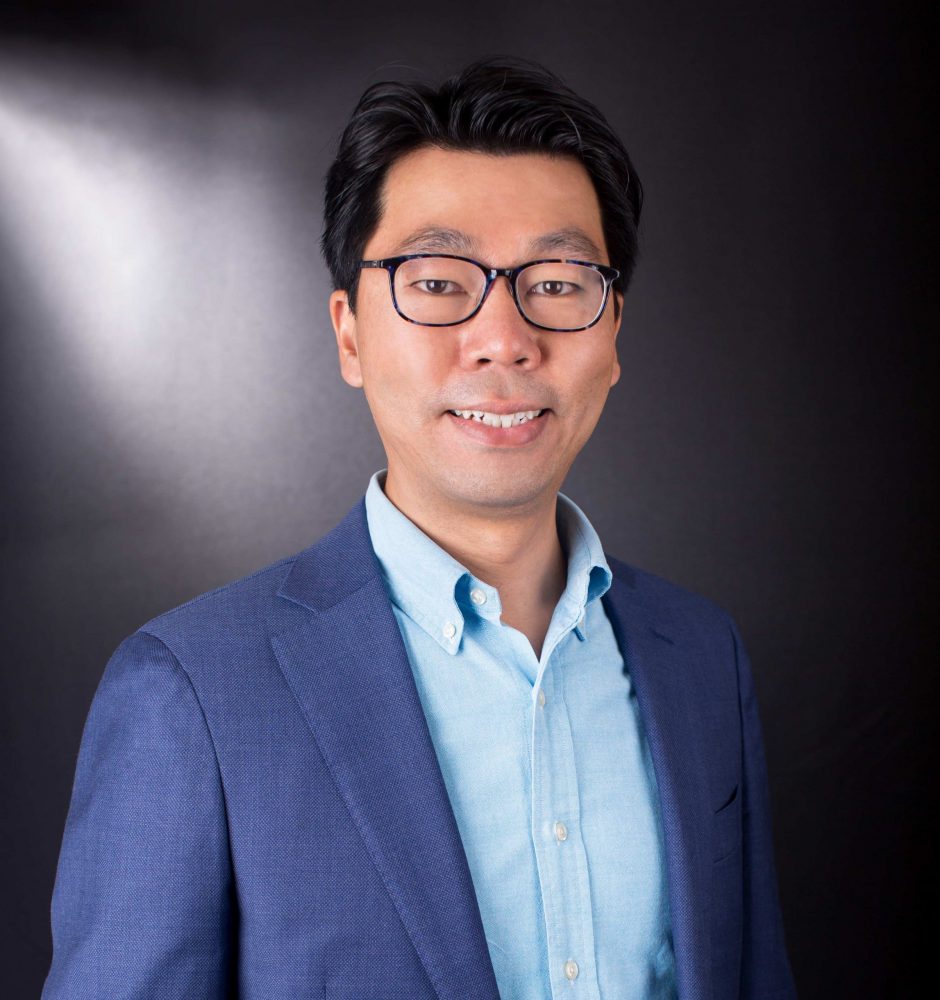港大經管學院副院長及亞洲環球研究所總監鄧希煒教授最近在CNA上發表了演講。他分享了對美中貿易戰演變的分析,以及這些變化對香港、大灣區、中國內地及其他地區企業的影響。 鄧希煒教授談到了最新關稅的影響: 大灣區:廣東省作為高科技製造的中心,對貿易衝擊的韌性較其他中國地區更強,這主要得益於相對較高的利潤率。 內需增長:中國的私人消費占名義GDP的比例低於40%。中國需要提升內部消費,這是經濟穩定的重要驅動力,以抵禦外部壓力。 多邊主義:儘管美中緊張局勢上升及地緣政治壓力促使中國多元化合作夥伴,中國仍然堅持多邊開放的貿易體系。 香港:美元對非人民幣貨幣的貶值可能吸引更多遊客,並促進本地消費。

3917 0029
3917 4388
MB 335/ KK 920
- PhD: MIT
- Bachelor: UCLA
Heiwai Tang is Victor and William Fung Professor in Economics, Director of the Asia Global Institute and HKU APEC Study Center, as well as the Hong Kong Institute of Economics and Business Strategy at the University of Hong Kong (HKU). Prior to joining HKU, he was tenured Associate Professor of International Economics at the School of Advanced International Studies (SAIS) of Johns Hopkins University. He is also affiliated with the Federal Reserve Bank of Dallas (U.S.), the Center of Economic Studies and Ifo Institute (CESIfo, Germany), the Kiel Institute for the World Economy (Germany) and the Globalization and Economic Policy Center (U.K.) as a research fellow. He has been a consultant to the World Bank, the International Finance Corporation, the United Nations, and the Asian Development Bank; and held visiting positions at the IMF, Stanford, MIT, Harvard. He is currently an associate editor of the Journal of International Economics, the Journal of Comparative Economics and the China Economic Review. Since 2021, he has served on a number of public bodies, including the Currency Board Sub-Committee of the HKMA’s Exchange Fund Advisory Committee and the Minimum Wage Commission in Hong Kong.
Heiwai holds a Ph.D. in economics from MIT and a Bachelor of Science in mathematics from UCLA. His research interests span a wide range of theoretical and empirical topics in international trade, with a specific focus on production networks, global value chains, and China. His research has been published in leading journals in economics, including American Economic Review and Journal of International Economics. His research and opinions have been covered by BBC, Financial Times, New York Times, Al Jazeera, Foreign Policy, South China Morning Post, and various think tanks such as the Brookings Institution and the Peterson Institute for International Economics.
Columbia-LBS-HKU EMBA: The New World Order
HKU-PKU DBA: Frontiers in Economics Research
Fudan-HKU IMBA: The New World Order
HKU: Undergraduate Common Core – China in the Global Economy; MBA – Global Economy; Master of Economics – Economic Policy
International Trade, Global Value Chains, Development Economics
- “Trade Networks and Firm Value: Evidence from the US-China Trade War,” Journal of International Economics, forthcoming. (with Yi Huang, Chen Lin, and Sibo Liu)
- “Currency Carry Trade by Trucks: The Curious Case of China’s Massive Imports from Itself”, Review of Finance, 27(2), March 2023, pp. 469–493. (with Xuepeng Liu, Zhi Wang, and Shang-Jin Wei)
- “Do Multinationals Transfer Culture? Evidence on Female Employment in China”, Journal of International Economics, 133, Nov 2021, 103518. (with Yifan Zhang)
- “Domestic Segment of Global Value Chains in China under State Capitalism”, Journal of Comparative Economics, 48(4), Dec 2020, pp. 797-821. (with Fei Wang and Zhi Wang)
- “Why is China Investing in Africa? Evidence from the Firm Level”, World Bank Economic Review, 32(3), Oct 2018, pp. 610-632. (with Wenjie Chen and David Dollar)
- “Are Foreign Firms Favored in China? Firm-level Evidence on the Collection of Value-Added Tax”, Journal of International Business Policy, 1(2), Inaugural Issue, Jun 2018, pp. 71-91. (with Yasheng Huang)
- “Domestic Value Added in Exports: Theory and Firm Evidence from China”, American Economic Review, 106(6), Jun 2016, pp. 1402-1436. (with Hiau Looi Kee)
- “Learning to Export from Neighbors”, Journal of International Economics, 94(1), Sep 2014, pp. 67-84. (with Ana Fernandes)
- “Factor Intensity, Product Switching, and Productivity: Evidence from Chinese Exporters”, Journal of International Economics, 92(2), Mar 2014, pp. 349-362. (with Yue Ma and Yifan Zhang)
- “International Politics and Import Diversification”, Journal of Law and Economics, 56(4), Nov 2013, pp. 1091-1121. (with Sergey Mityakov and Kevin Tsui)
- “Determinants of Vertical Integration in Export Processing: Theory and Evidence from China”, Journal of Development Economics, 99(2), Nov 2012, pp. 396-414. (with Ana Fernandes)
- “Labor Market Institutions, Firm-specific Skills, and Trade Patterns”, Journal of International Economics, 87(2), Jul 2012, pp. 337-351.
- APEC Study Center Financial Support from the HKSAR Government, PI, HKD 2,500,000, 2022-2027
- HKU Knowledge Exchange Grant, PI, HKD 497,000, 2023
- Hong Kong RGC Grant, Co-PI, HKD 418,975, 2022-2024
- Committee of 100 Next Generation Leader, 2018
- Richard Paul Richman Center for Business, Law, and Public Policy Grant, Columbia University, Co-PI, USD 14,500.
- Social Sciences and Humanities Research Council (SSHRC) of Canada Insight Grant, Co-Investigator, CAD 78,736
- Student-Elected Best Professor of the Master of International Econ and Finance Program, JHU SAIS, 2016-2017
- Alcoa Foundation Grant, Co-PI, USD 500,000, 2016-2019
- Hong Kong RGC Grant, Co-PI, HKD 364,378, 2017-2019
- Outstanding Referee Journal of International Economics, 2014-2017.
- Hong Kong RGC Grant, Co-PI, HKD 336,462, 2011-2013
- The Nuffield Foundation Social Science Grant, SGS/36581, Co-PI, £12,000, 2009-2011
- MIT Presidential Fellowship, 2002-2003
- Securities and Futures Appeals Tribunal of the HKSAR government, member, 2023 –
- Panel of Arbitrators of the Labour Relations Ordinance, HKSAR, member, 2023 –
- Insurance Authority in Hong Kong SAR, Member of the Industry Advisory Committee, 2022 –
- Telecommunications Appeal Board of the HKSAR Government, Member, 2022 –
- Currency Board Sub-Committee of the HKMA Exchange Fund Advisory Committee, Member, 2021-
- Minimum Wage Commission in Hong Kong SAR, Member, 2021 –
- Pacific Economic Review, Managing Editor, 2022 –
- Journal of International Economics, Associate Editor, 2019 – 2022
- China Economic Review, Associate Editor, 2018 –
- Journal of Comparative Economics, Associate Editor, 2017 – 2023
- China Economics Summer Institute, Academic Committee Member, 2017 –
- International Finance Corporation (IFC), Consultant, 2017 –
- United Nations Industrial Development Organization, Consultant, 2016 – 2017
- Asian Development Bank, Consultant, 2016 – 2017
- IMF, Research Department, Visiting Scholar, 2015 – 2016
- World Bank, Consultant, 2013 – 2017
在《南華早報》SCMP論壇“重新定義香港系列2025”上,港大經管學院副院長及亞洲環球研究所總監鄧希煒教授強調,香港的債務對GDP比率顯著低於新加坡、日本和美國等其他發達經濟體。這為政府主動利用政府擔保的債券來投資新的增長驅動力留下了很大的空間,因為歷史上對大型基建項目的投資回報率是正面的。 在新加坡《海峽時報》發表的一篇相關文章中,鄧教授分享了有關升級香港經濟部門的見解,這些見解與前述觀點一致。鄧教授表示:“香港的高排名和全球認可的大學擁有大量優秀的基礎科學和學術研究,這些研究應該具有一定的商業價值,需要被實現。” 他還強調了促進香港與大灣區其他城市之間更好協同的重要性。通過這些努力,香港可以解鎖新的機遇,鞏固這座城市作為不僅僅是金融中心的角色。
港大經管學院副院長及亞洲環球研究所總監鄧希煒教授在接受《南華早報》和《信報》訪問時分享了對財政預算的看法。他強調,政府正採取「保守的做法」來應對赤字,建議在2025-26財政年度減少2%的經常性開支,並在接下來的兩年內持續進行類似的削減。他認為,為了解決結構性赤字,特別是政府提高收入以應對開支不斷上升的能力仍未明朗,可能需要將削減開支的幅度提升至3%。 對於香港未來5年債務佔GDP比率最高16.5%,鄧教授形容為「完全安全」水平。至於人民幣債券,對於需要及持有人民幣的機構例如國企則有吸引力,雖然內地經濟遇壓力,但國企有資金流動性,年期為3至5年較合適。 鄧教授亦強調,針對機構投資者發債成本較低。隨著目前股市表現良好,零售投資者對債券的收益要求至少在4%至4.5%之間。因此,他建議應最大化機構市場的參與,因為3.5%的收益仍然具有吸引力。
香港經濟目前正面臨轉型的種種挑戰,尤其在地緣政治風險日益增大的背景下,這些困難尤為明顯。儘管如此,港大經管學院副院長及亞洲環球研究所總監鄧希煒教授接受TVB、有線新聞及香港電台等訪問時,表示依然樂觀。他指出,最新的財政預算案中包含了多項針對經濟轉型的措施,以及進取的減開支方案。他認為,分析香港財政時,必須區分短期和長期的影響。 鄧教授對政府每年能減少2%經常性開支表示有信心,並相信在4年內可達成7%的減幅。對於社會福利、醫療衛生及教育三大方面開支均超過1000億,他表示如新加坡一樣,香港亦面對人口老化等問題,所以在以上三方面開支難免有大幅增長。 在債務方面,鄧教授指出,香港的債務佔GDP約10%,這比新加坡超過170%的債務比例要健康得多。他預期未來1-2年內息口不會上升,發行10-15年期的債券以支持長期的基建投資是一個非常合理的做法。 鄧教授強調政府在理財方面需保持審慎,未來每年減少經常性開支,加上不同基金的整合,將為政府帶來可觀的收入,他亦指出,雖然基金回撥固然令財赤減少,但回撥基金亦令投資產生的回報減少。他認為,全球最低稅和最低補足稅可能每年為政府帶來約150億元的稅收,但這也可能影響香港的競爭力,因此需謹慎評估外資流失的風險。最後,他指出,推動文化產業和吸引非國內遊客將有助於提升香港的經濟貢獻。
港大經管學院今年初曾發表研究報告,指港府可充分利用債券計劃額度發債融資,其團隊成員兼該學院副院長(對外事務)鄧希煒表示,從經濟學角度看,並沒有政府債務佔GDP比率超出某水平便對經濟構成危險的共識,現時政府未償還債務佔比未達到需要關注的水平,香港有空間再發逾千億元債券,估計新一個財政年度發行額或與去年相若,如果融資所得是匹配長期基建支出,發行年期愈長愈好,即使未來相關比率逐步增至20%,依然具發債空間,關鍵是市場吸收程度和利息成本考慮。
由日本經濟學家赤松要(Kaname Akamatsu)在1930年代提出的「雁行理論」(Flying Geese Paradigm),描述東亞國家從勞動密集型製造業,向資本和技術密集型產業升級發展。雁行理論指出,作為「領頭雁」的日本率先完成工業化,並通過外國直接投資帶動其他國家發展,令東亞經濟形成了一種相互依存、梯度推進的產業分工體系,其結構有如天空中的雁群。此理論在二戰後幾十年的經濟實踐中得到驗證,日本企業全球擴張的策略不但塑造了東亞製造業的格局,也成為後來中國、南韓等國家企業全球化之範本。
在歷史上一直是國際上重要貿易樞紐的香港,正面臨着來自亞洲其他貨運港口的發展、跨境電子商貿的興起,以及新冠疫情和地緣政治緊張局勢所造成的挑戰。越來越多的公司採取「中國+N」策略來擴展生產網絡和降低風險。 隨著中國及其周邊國家在亞洲推動工業發展,港大經管學院副院長及亞洲環球研究所總監鄧希煒教授認為香港必須重新定義其戰略策略性定位,專注成為中國與新興經濟體之間的門戶,識別在區域供應鏈中具有比較優勢的環節,並通過把握新全球化趨勢來應對地緣政治緊張局勢。
隨著中國於2001年加入世貿組織,香港的轉口港地位逐漸減弱,尤其是在中藥材的進出口方面。鄧希煒教授指出,內地港口快速發展,令香港在這一行業的依賴性降低。他提到,內地的生產力不斷提高,運輸成本也持續下降。例如,香港處理一個貨櫃的成本約為2,000美元,需停留三到五天,而在深圳或上海,成本可以減半甚至更多。隨著港口自動化和數位轉型,香港面臨的不僅是內地的競爭,還有來自亞洲其他港口的挑戰。 鄧教授強調,過去依賴轉口貿易的行業必須尋找新的出路。他表示,「2000年左右,每一元來到香港再轉口,我們可以賺取大概五毫;今時今日一元來香港再轉口,大概只剩下兩毫。」反映競爭加劇和成本壓力增加,導致利潤逐漸降低。他指出,這不僅影響中藥材的出口,整體上出口都有類似情況,顯示出香港在全球貿易格局中所面臨的挑戰。
隨著香港面臨人口老齡化和低出生率的問題,許多退休人士發現自己在財務上準備不足。港大經管學院副院長及亞洲環球研究所總監鄧希煒教授在亞洲金融論壇(AFF)上分享了他的看法,指出「香港的養老壽險產品訂閱量實際上非常少。」他進一步指出,香港的強積金(MPF)只能覆蓋約40%的退休前收入,導致生活質量顯著下降。 隨著香港公共醫療系統變得越來越擁擠,而私人服務成本高昂,大灣區(GBA)提供了一個有前景的替代方案,那裡的生活和醫療成本顯著降低。鄧教授還表示:「我們開始看到很多香港人北上消費……但越來越多的人也會北上進行常規的醫療和牙科服務。」他建議,一個潛在的方向是開發保險產品,以覆蓋市民在大灣區退休時的需求。
香港政府預計本年度將出現近1000億港元的赤字,這一數字遠高於去年二月最初預測的481億港元。國際貨幣基金組織(IMF)強調,香港需要增強稅收以應對與人口老齡化相關的支出壓力。 港大經管學院副院長及亞洲環球研究所總監鄧希煒教授支持通過提高稅率或擴大稅基來解決可能出現的結構性財政赤字問題。他指出政府官員存在一種「心理陷阱」,認為提高稅收會損害生產力,同時指出新加坡實施商品及服務稅(GST)並未在中期內影響生產力。他表示:「擴大稅基,特別是引入銷售稅,將是一條單行道」,強調隨著政府開支增長,需尋求可持續的收入來源。





